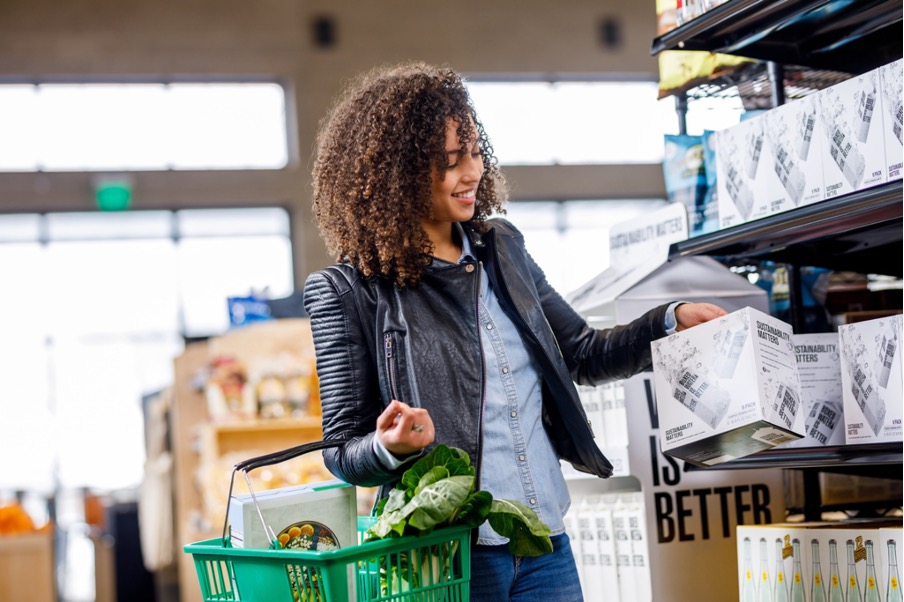Features
Top 5 Smart Tips to Go Grocery Shopping

We love it, we know how to do it, and we practice it. But the most frustrating thing is that most of the items we buy end up not being that necessary.
As a result, at the end of the month, we don’t have enough money for our daily expenses, not to mention our hobbies, like reading books or virtual betting, and traveling. Want to avoid that? Then here are a few tricks to help avoid impulse purchases.
Take a Picture of What You Have in Your Fridge
It’s hard not to buy something unnecessary if you have no idea what kind of food is in the fridge: “I think there was some milk left…Or was it yogurt? And what’s in the freezer? I think meat as I bought chicken a few days ago. Eggs are definitely needed. Or I’ll buy some later?”
Usually, after such thoughts, a lot of unnecessary products appear in the basket, and those that are really needed, on the contrary, remain lying on the supermarket shelves. To stick to the plan, you should at least make a list of products. Better yet, take pictures of the contents of your fridge. So you will be able to double-check which products you can postpone buying, if you don’t want to go to the market, and which have already run out completely and should appear in the fridge today.
When you are walking around the supermarket and your eyes are fixed on some sauce, the photo gives you the opportunity to “clarify” whether such a product is absent from the shelf, or you just forgot about it.
Look at the Top and Bottom Shelves
Usually expensive items are placed at eye level – this is the main principle of merchandisers. And this is logical, because a person in the first place pays attention to the shelves that are the most convenient for his eyes, not even thinking about the motives for this action. Moreover, few people want to make the effort to reach for the product on the top shelf or sit down to get the product from the bottom. And that’s where products that are just as good in quality, but much nicer in price, can humbly stand. Try looking at all the shelves next time you go to the store, and compare the cost of the products.
Don’t Buy Disposable Meal Ingredients
Scrambled eggs, pasta, and salad are all delicious, easy and quick to make, and everyone also loves them. But no one wants to eat the same thing every day. Hence the thirst for culinary experiments, especially since various blogs and communities in social networks are constantly offering new recipes.
If you want to please the family with an original dish, try to choose one that won’t include unusual ingredients, such as maple syrup, coconut oil and Worcestershire sauce. If you are aware in advance that this product is “disposable,” and after you use a teaspoon for a dish, you will have to push the jar to the farthest shelf, there is no need to buy it. It’s an unnecessary waste of money. Of course, there’s always the possibility that the product will be liked and come into use, but is a new recipe worth the risk?
Go to the Store Without the Kids
Of course, this is not always possible, but if you have a chance to leave your child at home, by all means take advantage of it, otherwise you definitely can’t avoid unnecessary spending. In stores, shelves with sweets, toys and other colorful goods that are so strongly attracted to children are always downstairs. This is done so that the child is sure to see some treat or bright thing, was able to take it, and then began to persuade parents to buy. And it’s good if after the first “no” the baby calms down. But, as practice shows, the child not only does not understand the refusal, but also throws a tantrum, so we have to either satisfy his desire, or hurry to leave the store.
Go to the Store Late in the Morning
In a crowded store, few people can feel comfortable. First you can’t get past the other customers in the narrow rows, then you have to wait for the person to move away from the shelf you want, and the finale is a huge queue. And we all know that at such moments, our eyes are caught by the various sweets, coffee sticks, gummies and other “little things” located on the shelf at the checkout. And while we’re waiting, there’s a good chance that many of these items will migrate to our cart.
When there are a lot of people in the supermarket, we spend less time studying the goods and grab the first thing that comes to hand, in order to quickly go home. And the range is not as diverse. That’s why it’s better to go to the store not in the evening, when everyone goes shopping after work, but in the late morning. There are far fewer customers at this time, and the staff have just enough time to fill the shelves with fresh products, such as bread, meat or dairy products.







